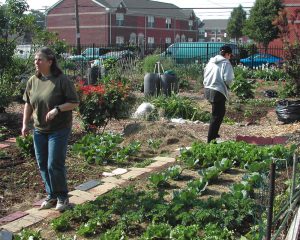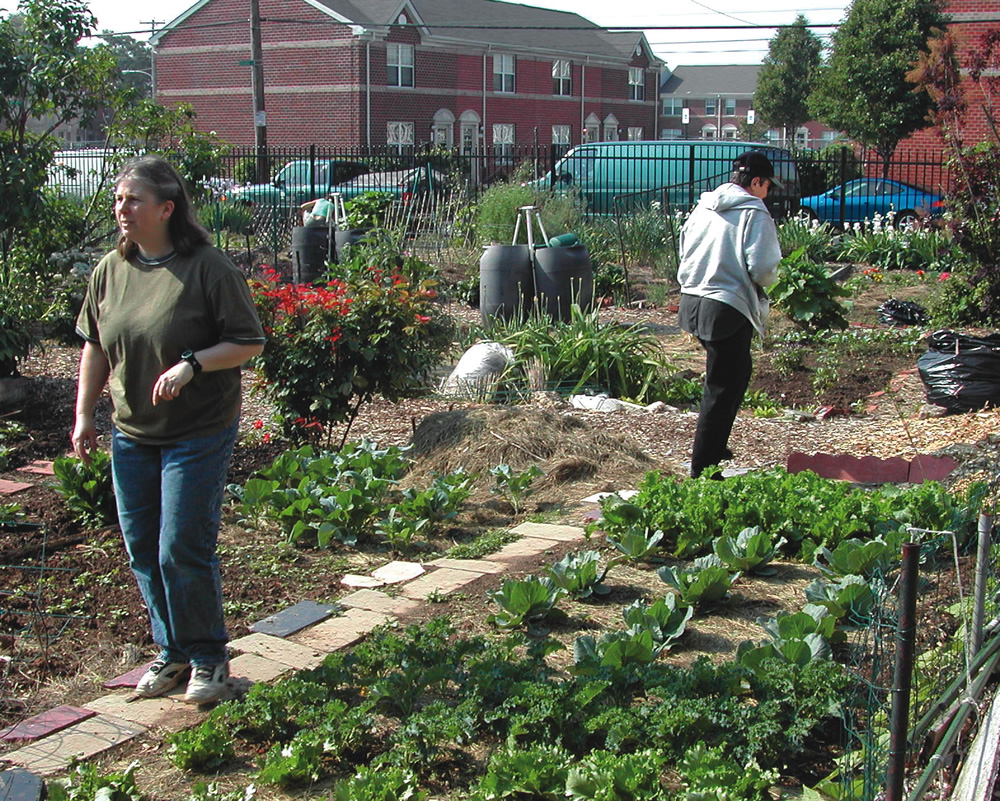BioCycle July 2012, Vol. 53, No. 7, p. 6
Draft Legislation Calls For Improved National Recycling Data
A bipartisan House Bill “discussion draft” titled “Increasing Manufacturing Competiveness Through Improved Recycling Act of 2012” and authored by Representatives John Sullivan (R-OK) and Dan Boren (D-OK), would assist manufacturers, states, localities and other stakeholders achieve a better understanding of existing recycling data and recycling collection systems. The draft directs the USEPA to gather and review information on the collection, handling, processing and use of recyclable materials diverted by municipal collection systems and the recovery by manufacturers of such recyclable materials, and submit a report to Congress. The legislation encourages EPA to work with the U.S. Departments of Energy and Commerce, as well as private industry (e.g., manufacturers, brand owners), municipalities, processors and recovery facilities, environmental associations and others to gather the data. The report to Congress would include such data as the tonnage of recyclable materials diverted by each type of collection system, quantities recovered by manufacturers, tonnages of recyclable materials disposed in landfills directly after use, and tonnages disposed following diversion, sorting and processing.
In testimony at a hearing on the draft bill before the House Energy and Commerce Committee’s Subcommittee on Environment and the Economy, Lynn Bragg, President of the Glass Packaging Institute (GPI), offered support for the legislation.
“A top priority for GPI and its members is to divert and recycle glass containers currently in the municipal solid waste stream rather than commit those valuable materials to perpetual, wasteful loss in landfills,” said Bragg. “Recycling is a critical part of this country’s glass container manufacturing industry, which produces 28 billion food and beverage containers annually and provides more than 18,000 high paid jobs throughout the United States.” GPI and other packaging-based industries and companies have established goals to increase their use of recycled materials in the manufacturing process. Success in achieving these goals largely depends on the strength of existing information on recovery programs and an understanding of where the materials collected through these programs end up. “There is a big gap between what is thought to be recycled and what is actually reaching manufacturers,” said Bragg in her testimony. “…Specifically, [it] requires EPA to more effectively utilize existing data on collection of recyclable materials, already being reported by states and communities, and to seek additional data to identify the recovery of those same materials, broken down by type of collection system. This information will allow states, communities and other stakeholders to evaluate the effectiveness of recycling programs. In particular, these data will allow stakeholders to understand what happens to recyclable materials after collection.”
Josh Nelson — Compost-To-Energy Pioneer
 Compost-to-energy pioneer Josh Nelson passed away on June 4. Based in Vermont, Josh was a partner and the director of Agrilab Technologies, LLP, a startup company providing systems to harness thermal energy from composting. Previous work in the industry included managing a composting site and a worm farm. Nelson’s development of the Agrilab Isobar Compost Heat Exchange technology with business partner Brian Jerose was about to gain new and unprecedented exposure. The company had been recently selected to take part in a six-week summer program hosted by the Boulder, Colorado-based Unreasonable Institute. The program is designed to help environmental and social entrepreneurs launch their projects by pairing them up with successful alternative business and technology mentors as well as likely investors. Agrilab was first chosen as a finalist from more than 300 international enterprises, then was among the first 25 businesses to raise $10,000 for their projects, earning Nelson a spot at the Institute and the title of “2012 Unreasonable Fellow.”
Compost-to-energy pioneer Josh Nelson passed away on June 4. Based in Vermont, Josh was a partner and the director of Agrilab Technologies, LLP, a startup company providing systems to harness thermal energy from composting. Previous work in the industry included managing a composting site and a worm farm. Nelson’s development of the Agrilab Isobar Compost Heat Exchange technology with business partner Brian Jerose was about to gain new and unprecedented exposure. The company had been recently selected to take part in a six-week summer program hosted by the Boulder, Colorado-based Unreasonable Institute. The program is designed to help environmental and social entrepreneurs launch their projects by pairing them up with successful alternative business and technology mentors as well as likely investors. Agrilab was first chosen as a finalist from more than 300 international enterprises, then was among the first 25 businesses to raise $10,000 for their projects, earning Nelson a spot at the Institute and the title of “2012 Unreasonable Fellow.”
Seattle Bans Plastic Bags
As of July 1, retail stores within the city of Seattle, Washington may no longer distribute single-use plastic shopping bags, even those advertised as “compostable,” “biodegradable” and/or “photodegradable.” The policy is designed to promote use of recyclable, reusable or paper bags. Retail stores are required to charge a minimum of five cents for paper carryout bags of “one-eighth-barrel” (the size of a typical flat-bottom paper grocery bag). These bags must contain at least 40 percent postconsumer recycled fiber, and the minimum recycled content must be displayed on the outside of the bag. Stores may charge for smaller paper bags at their own discretion. Bag charges must be shown on customers’ receipts as taxable retail sales, and the stores keep all revenue. Thicker plastic carryout bags (2.25 mil or more) are not part of the ban, and stores are not required to charge for them. Violators of the new statute are subject to a $250 fine.
Exemptions from the law include a waiver of the 5 cent bag charge for customers on federal food assistance programs; approved compostable food and yard waste bags; plastic bags for restaurant takeout food orders (though recyclable paper bags are encouraged); in-store plastic bags to protect produce, meat, fish, poultry, flowers, deli foods and the like where moisture may be an issue; and dry cleaning, newspaper, door-hanger bags and plastic bags sold in packages containing multiple bags intended for use as garbage bags or for pet waste. The law also prompts Seattle Public Utilities to work with Seattle retailers to promote reusable bags as the best alternative to single-use plastic carryout bags.
City Harvest Fills Empty Plates
 In 2009, the Pennsylvania Horticultural Society (PHS) received a $300,000 USDA Community Food Security Grant to expand its City Harvest program. In partnership with the Philadelphia Prison System, a food distribution network called SHARE, the Health Promotion Council of Southeastern Pennsylvania, Weavers Way Co-op and Farm and 45 community gardens, City Harvest has grown more than 140,000 pounds of fresh, organically grown produce, helping to feed around 1,000 families each week of the growing season. The gardens pledge to share a portion of their bounty, says PHS Community Gardens Manager Eileen Gallagher.
In 2009, the Pennsylvania Horticultural Society (PHS) received a $300,000 USDA Community Food Security Grant to expand its City Harvest program. In partnership with the Philadelphia Prison System, a food distribution network called SHARE, the Health Promotion Council of Southeastern Pennsylvania, Weavers Way Co-op and Farm and 45 community gardens, City Harvest has grown more than 140,000 pounds of fresh, organically grown produce, helping to feed around 1,000 families each week of the growing season. The gardens pledge to share a portion of their bounty, says PHS Community Gardens Manager Eileen Gallagher.
Participating gardeners must agree to grow without the use of pesticides, herbicides or chemical fertilizers. ‘We provide the seedlings, harvest tools and pest and disease-control materials,” explains Gallagher. “We help connect them to food cupboards in their neighborhood, and they keep track of their monthly donations to assist with reporting back to USDA.” The Health Promotion Council staff travel to all the participating food cupboards and community gardens giving nutrition workshops and cooking demonstrations.
The prison component of the City Harvest program began in 2005. “The current commissioner of prisons happened to call us and asked if we would be interested in helping renovate a greenhouse at the House of Corrections Alternative & Special Detention facility in Philadelphia,” recalls Gallagher. “We had no greenhouse so started working with them to create a horticulture training program for the inmates.” The program, called Roots to Reentry, has taken off, she adds. “The inmates grow all the seedlings they can for City Harvest in a six to eight week training program.” Selected inmates go on to receive additional training in an apprenticeship/work release program.










